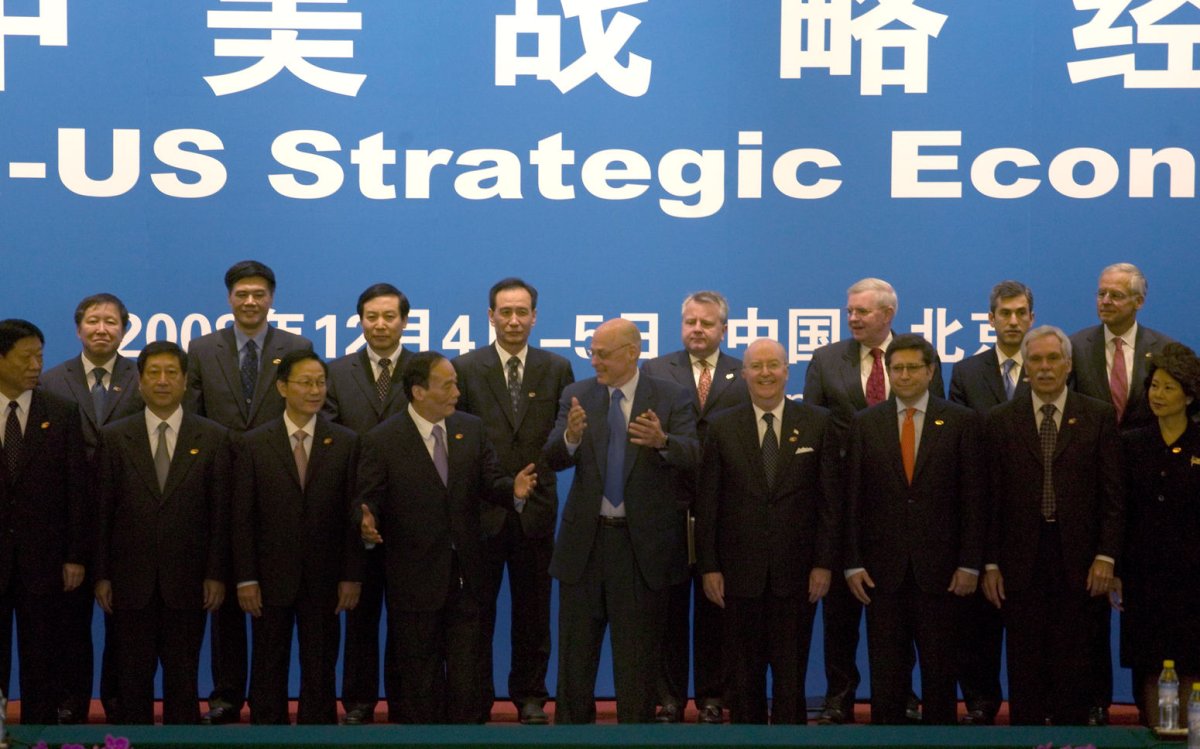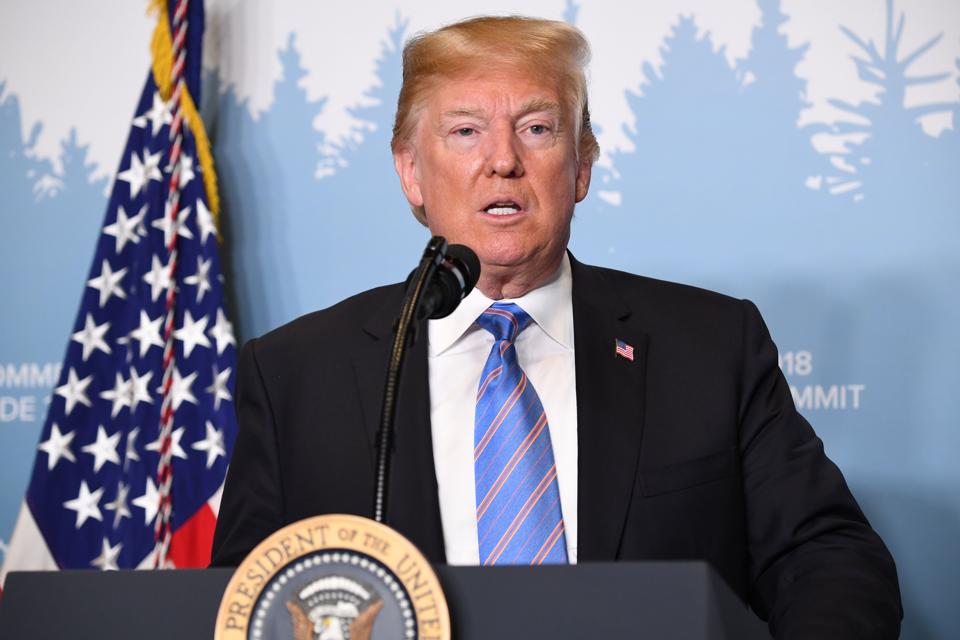Hungary Defies US Pressure, Maintaining Strong Economic Ties With China

Table of Contents
Hungary's Strategic Rationale for Engaging with China
Hungary's engagement with China is driven by a multifaceted strategic rationale, encompassing both economic advantages and geopolitical considerations.
Economic Benefits
The economic benefits for Hungary stemming from its relationship with China are substantial and multifaceted:
- Increased Foreign Direct Investment (FDI): Chinese companies have significantly invested in Hungary, injecting capital into various sectors and boosting economic activity. This FDI contributes significantly to Hungary's GDP growth.
- Expansion of Hungarian Exports: Access to the vast Chinese market has opened up significant opportunities for Hungarian exporters, particularly in sectors like agriculture and manufacturing. This has led to increased export revenue and strengthened the Hungarian economy.
- Job Creation and Economic Growth: Chinese investments have spurred job creation across various sectors in Hungary, contributing to overall economic growth and improved living standards. This is a crucial element of Hungary's economic strategy.
- Access to Chinese Technology and Expertise: Cooperation with China has facilitated access to advanced Chinese technologies and expertise, enhancing Hungary's innovation capabilities and competitiveness in global markets. This technological exchange is a key aspect of the burgeoning partnership.
Geopolitical Considerations
Beyond pure economic benefits, Hungary views its relationship with China as a crucial element of its geopolitical strategy:
- Counterbalancing Western Influence: By diversifying its economic partnerships, Hungary aims to reduce over-reliance on Western powers and maintain a degree of independence in its foreign policy.
- Securing Alternative Markets and Investment Sources: Engagement with China provides Hungary with alternative markets and investment sources, mitigating risks associated with reliance on a single economic bloc. This diversification strategy minimizes vulnerability to economic shocks.
- Avoiding Dependence on a Single Economic Bloc: This approach reduces Hungary's vulnerability to potential economic or political sanctions from the West, bolstering its economic resilience.
Key Sectors of Hungary-China Economic Cooperation
The economic cooperation between Hungary and China spans several key sectors:
Infrastructure Development
China's involvement in major infrastructure projects in Hungary has been significant. The Budapest-Belgrade railway, a key component of the "Belt and Road Initiative," exemplifies this cooperation. These projects not only enhance Hungary's infrastructure but also contribute to regional connectivity and trade facilitation, boosting economic activity along the transport corridors.
Technology Transfer and Innovation
Technology transfer and innovation form another pillar of the partnership. Cooperation spans various sectors, including information technology, telecommunications, and renewable energy, enhancing Hungary's technological capabilities and fostering innovation.
Agricultural Trade
Agricultural trade between the two countries is expanding rapidly. Hungary exports agricultural products to China, gaining access to a large and lucrative consumer market. This exchange is mutually beneficial, contributing to the economic prosperity of both nations.
US Concerns and Diplomatic Tensions
The burgeoning relationship between Hungary and China has not been without its critics, primarily the United States.
Security Implications
The US expresses concerns about the potential security implications of increased Chinese influence in Hungary, citing risks related to technological dependence and data security. These concerns are part of a broader discussion about the strategic competition between the US and China.
EU-China Relations
Hungary's stance complicates the EU's overall strategy toward China, potentially creating internal divisions within the bloc. The EU's approach to China often involves balancing economic engagement with concerns about human rights, security, and fair competition.
Sanctions and Countermeasures
The US and EU might consider sanctions or other countermeasures if they perceive Hungary's actions as undermining broader Western interests or security concerns. However, the economic benefits enjoyed by both Hungary and China may act as a powerful deterrent.
The Future of Hungary-China Economic Ties
The trajectory of Hungary-China economic relations remains dynamic and subject to various factors.
Projected Growth and Challenges
Despite potential challenges such as geopolitical instability and economic fluctuations, the economic ties between Hungary and China are expected to continue growing. However, the global economic climate and potential changes in Chinese foreign policy will influence this trajectory.
Potential for Diversification
While maintaining strong ties with China, Hungary also has the potential to diversify its economic partnerships further, reducing over-reliance on any single country or bloc. This strategy could enhance Hungary's overall resilience.
Impact on Regional Stability
Hungary's close economic relationship with China has significant implications for regional stability in Central Europe, influencing the economic and political landscape of the region.
Conclusion
Hungary's decision to cultivate strong economic ties with China, despite US pressure, highlights the country's strategic priorities. The economic benefits are considerable, including increased FDI, export growth, and job creation. However, this approach also carries geopolitical implications, raising concerns within the US and the EU regarding security and strategic alignment. The future of Hungary's economic ties with China will depend on a complex interplay of economic factors, geopolitical considerations, and the evolving dynamics of global power. To gain a deeper understanding of this complex relationship, further exploration of resources dedicated to China's investment in Hungary and Hungary's China policy is encouraged.

Featured Posts
-
 The Pete Rose Pardon Debate Trumps Stance And The Future Of Mlbs Betting Policy
Apr 29, 2025
The Pete Rose Pardon Debate Trumps Stance And The Future Of Mlbs Betting Policy
Apr 29, 2025 -
 More Young People Diagnosed With Adhd At Aiims Opd Understanding The Increase
Apr 29, 2025
More Young People Diagnosed With Adhd At Aiims Opd Understanding The Increase
Apr 29, 2025 -
 At And T Slams Broadcoms V Mware Price Hike A 1 050 Increase
Apr 29, 2025
At And T Slams Broadcoms V Mware Price Hike A 1 050 Increase
Apr 29, 2025 -
 Capital Summertime Ball 2025 Tickets The Ultimate Guide To Purchase
Apr 29, 2025
Capital Summertime Ball 2025 Tickets The Ultimate Guide To Purchase
Apr 29, 2025 -
 Sag Aftra Joins Wga On Strike Line What This Means For Hollywood
Apr 29, 2025
Sag Aftra Joins Wga On Strike Line What This Means For Hollywood
Apr 29, 2025
Latest Posts
-
 Celtics Vs Knicks Your Guide To Live Streaming And Tv Broadcast
May 12, 2025
Celtics Vs Knicks Your Guide To Live Streaming And Tv Broadcast
May 12, 2025 -
 Where To Watch Celtics Vs Knicks Live Stream Tv Channel And Game Details
May 12, 2025
Where To Watch Celtics Vs Knicks Live Stream Tv Channel And Game Details
May 12, 2025 -
 Watch Celtics Vs Knicks Live Free Streaming Guide And Tv Channel Info
May 12, 2025
Watch Celtics Vs Knicks Live Free Streaming Guide And Tv Channel Info
May 12, 2025 -
 Celtics Vs Knicks Live Stream Tv Channel And How To Watch
May 12, 2025
Celtics Vs Knicks Live Stream Tv Channel And How To Watch
May 12, 2025 -
 Nba Picks Cavaliers Vs Knicks Odds Analysis And Prediction February 21
May 12, 2025
Nba Picks Cavaliers Vs Knicks Odds Analysis And Prediction February 21
May 12, 2025
